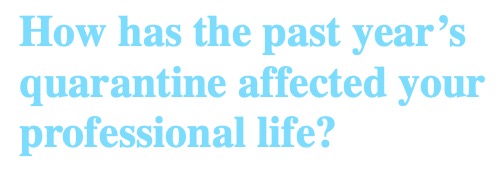As a media scholar, this has been a fascinating period to observe what happens when the media ecology is profoundly disrupted: What happens when cinema is suspended? When the relations between theatrical exhibition and streaming distribution get renegotiated? When the technical gap between commercial and grassroots media production narrows as everyone is making media out of their living rooms? When people rely on online communities as never before? When education shifts from face-to-face to online teaching? When the parental shorthand of “screentime” has to be rethought, with a focus on the purposes and forms of engagement children have with screens? And when a new medium—Zoom—undergoes a rapid process of dispersion across much of the population? These are only a few of the questions that one might want to ask about this transformative period.
Professionally, the biggest shift has been toward a dramatic expansion in the opportunities to speak internationally: freed from travel and accommodation costs, universities that would never have been able to afford to host American scholars have asked me to speak via Zoom to their students and colleagues. I have been able to accept more invitations because travel time does not take me away from my commitment to my own students. I have been able to speak on multiple continents on the same day. And this process has plugged me into new networks, and called attention to new topics, that will inform my scholarship for years to come.
HENRY JENKINS, media scholar and professor, University of Southern California

